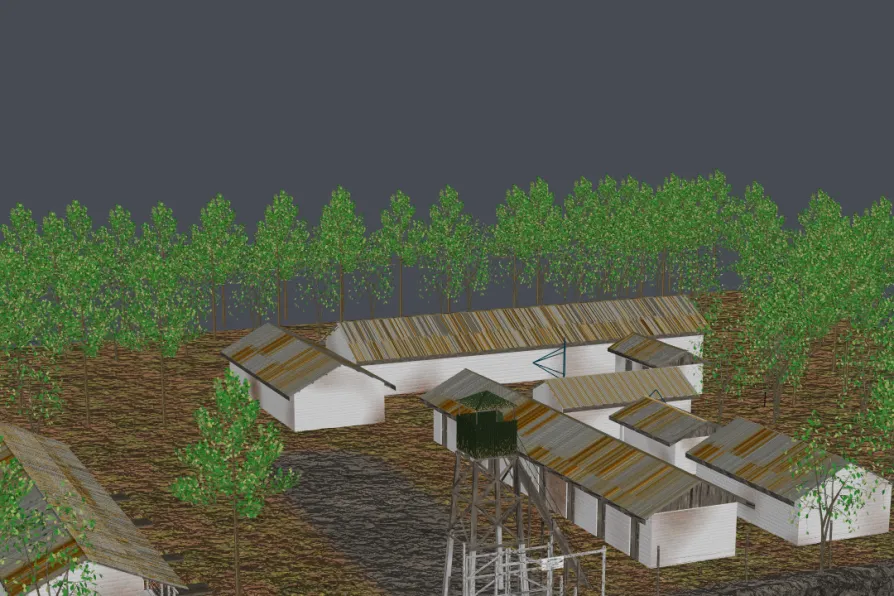
 A model of Aguthi, a British detention camp in Kenya
A model of Aguthi, a British detention camp in Kenya
HISTORIANS have digitally reconstructed Britain’s colonial-era Kenyan torture chambers to teach people about the crimes of empire.
The Museum of British Colonialism (MBC) showed 3D models on its website today, exposing the horror of two imperial detention camps in Kenya’s Central province, Aguthi and Mweru.
British colonial administrators in Kenya erected and operated both sites as part of a countrywide “pipeline” comprising more than 100 detention camps, works camps and emergency villages used to detain and control the native Kenyan population during the 1952-60 uprising against imperial rule.
The models were created by Chao Tayiana, Mike Wanjala and Grace Sampao in the MBC Nairobi team in partnership with African Digital Heritage.
They are the first in a series that aims to raise awareness of barbaric British counterinsurgency techniques used in Kenya during the 1950s.
Speaking to the Morning Star ahead of the launch, MBC co-founder Olivia Windham Stewart said: “They were definitely concentration camps, there’s no doubt about it.
“The torture was so extreme. They were chopping off people’s testicles.”
Guards were ordered to torture Kenyan detainees “without respite,” she said.
Colonial authorities ruthlessly targeted the Kenya Land & Freedom Army in a last-ditch attempt to maintain imperial rule in east Africa.
Resistance leader Dedan Kimathi was hanged by the British but other key rebels such as Field Marshal Mathoni Wakira were never captured: she is still alive today, aged 88.
While some veterans of the uprising remember the precise location of the torture camps, there is no easily accessible online record, something which the volunteer-run MBC aims to address.
Although the museum eventually wants to document all of British colonialism, Ms Windham Stewart explained that “Kenya was a good place to start because it’s been through the courts.”
The high court in London ruled in 2011 that Kenyan survivors of the torture camps could sue the British government for compensation.
In 2013, then foreign secretary William Hague announced £20 million in payouts to more than 5,000 Kenyans.
To visit the Museum of British Colonialism, go online to www.museumofbritishcolonialism.org.
















